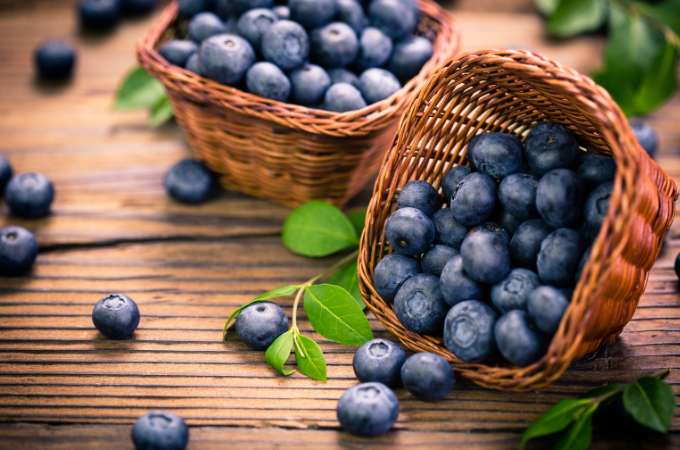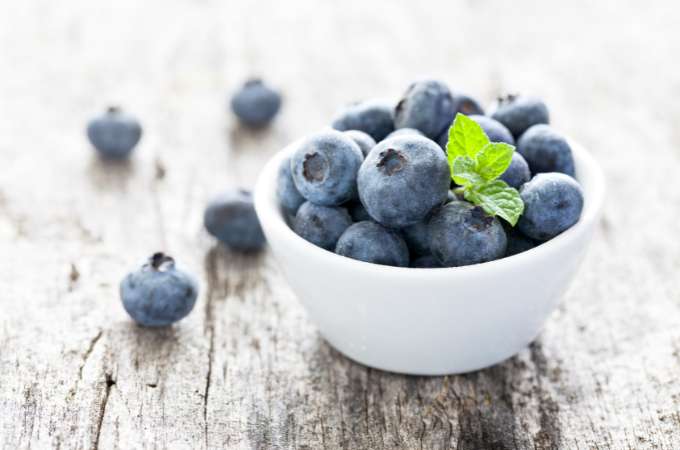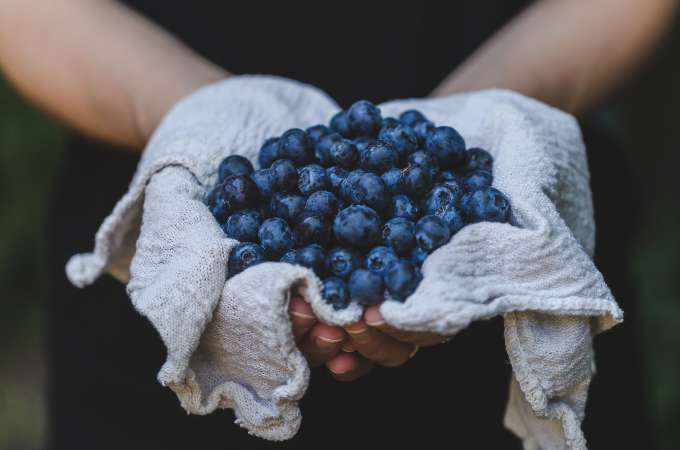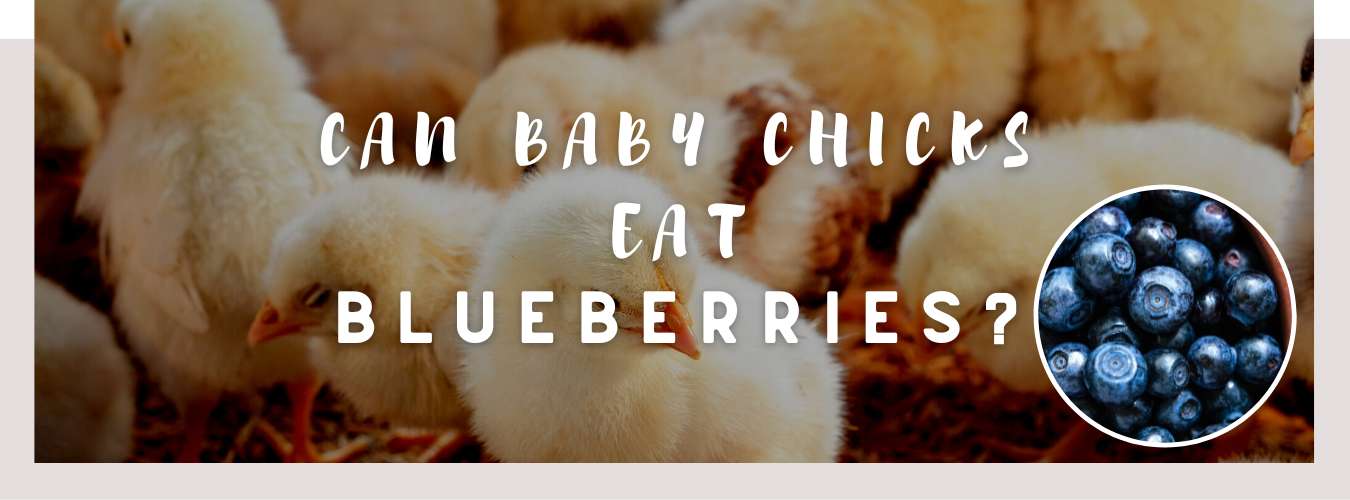
Raising baby chicks can be a delightful and rewarding experience, but it also comes with the responsibility of ensuring their proper nutrition and care. One common question among chick owners is about the suitability of various foods for their young birds. In this context, the question “Can Baby Chicks Eat Blueberries?” is particularly relevant. This article aims to provide comprehensive insights into whether blueberries are a safe and nutritious choice for baby chicks.
Nutritional Profile of Blueberries
Blueberries are known for their high nutritional value, packed with vitamins, antioxidants, and fiber. They are particularly rich in Vitamin C and Vitamin K, and also contain a decent amount of manganese. These nutrients are beneficial not just for humans but also for animals, including baby chicks. However, the unique dietary needs of chicks must be considered when introducing any new food.
Benefits of Blueberries for Baby Chicks
Antioxidant Properties: Blueberries are loaded with antioxidants, which are crucial for the healthy development of chicks. These antioxidants can help in boosting their immune system, protecting them from various diseases.
Digestive Health: The fiber in blueberries can aid in digestion, ensuring that baby chicks have a healthy gut. This is important for their overall growth and nutrient absorption.
Vitamin Enrichment: The vitamins present in blueberries, such as Vitamin C, play a vital role in the bone and feather development of chicks, contributing to their overall health and well-being.
Potential Risks and Considerations
While blueberries are nutritious, there are a few considerations to keep in mind:
Choking Hazard: Due to their size, blueberries could pose a choking hazard for very young chicks. It’s essential to monitor them while they eat or consider mashing the berries to make them safer.
Sugar Content: Blueberries contain natural sugars. While not harmful in small quantities, excessive sugar can lead to digestive issues or unhealthy weight gain in chicks.
Pesticides and Chemicals: If the blueberries are not organic, they might contain traces of pesticides or chemicals, which can be harmful to baby chicks. Washing them thoroughly or opting for organic blueberries is advisable.
You might also like: What Can Chickens Eat?

Feeding Recommendations
When introducing blueberries to baby chicks, it’s important to do so gradually and in moderation. Start with a small amount to see how they react. If there are no adverse effects, you can slowly increase the quantity. However, blueberries should only be a treat, not a staple in their diet.
Serving Suggestions
To safely incorporate blueberries into a chick’s diet, consider the following methods:
- Mash the blueberries to reduce the risk of choking.
- Mix blueberries with their regular feed to provide a balanced diet.
- Offer blueberries as a treat, not replacing their primary food source.
Understanding the Dietary Needs of Baby Chicks
Before introducing any new food like blueberries to baby chicks, it’s essential to understand their basic dietary requirements. Baby chicks primarily need a diet rich in protein to support their rapid growth and development. This protein is typically provided through starter feeds, which are specially formulated to meet the nutritional needs of young poultry. These feeds also contain the right balance of vitamins and minerals necessary for healthy development. While treats like blueberries can be a healthy addition, they should never replace these fundamental dietary components.
How Blueberries Complement a Chick’s Diet
Enhancing Immune Function: The immune-boosting properties of blueberries can be particularly beneficial for chicks, who are often vulnerable to infections and diseases. The antioxidants in blueberries, like anthocyanins, help strengthen the immune system, providing an extra layer of protection for these young birds.
Supporting Feather Growth: The vitamins in blueberries, especially Vitamin C, play a crucial role in collagen formation, which is vital for the development of healthy feathers. Feathers are made of keratin, a protein that requires adequate nutrition to be synthesized properly. The nutrients in blueberries can support this process, contributing to the chick’s plumage health.
Moderation is Key

While blueberries are beneficial, they should be given in moderation. Overfeeding blueberries can lead to nutritional imbalances, as chicks might consume fewer essential nutrients from their primary feed. A good rule of thumb is to ensure that treats like blueberries make up no more than 10% of a chick’s overall diet.
Preparing Blueberries for Baby Chicks
Size Consideration: For very young chicks, it’s advisable to cut the blueberries into smaller pieces to prevent any risk of choking. As they grow older and their pecking becomes more controlled, whole blueberries can be introduced.
Frequency of Feeding: Introduce blueberries as a treat a few times a week. This frequency ensures that the chicks enjoy the benefits of the berries without compromising their primary nutritional needs.
Observing Your Chicks
When introducing any new food, including blueberries, observe your chicks closely. Look for signs of enjoyment, how well they digest the food, and any adverse reactions. If you notice any negative symptoms like diarrhea or changes in appetite, it’s best to consult with a veterinarian.
The Joy of Feeding Blueberries
Feeding blueberries to baby chicks can also be a bonding experience. Chicks are naturally curious and will often be excited by the introduction of a new food item. This can be an opportunity for chick owners to interact with their birds, building trust and familiarity.
When choosing blueberries for your chicks, consider the environmental impact. Opting for locally sourced, organic blueberries can reduce the ecological footprint and ensure the healthiest option for your birds.
Final Thoughts
In conclusion, baby chicks can safely eat blueberries in moderation. These berries offer nutritional benefits, including antioxidants, vitamins, and fiber, which can contribute to the healthy development of chicks. However, it’s crucial to introduce them carefully, considering the potential risks and ensuring that blueberries are only a small part of a balanced diet.
Contents
- 1 Nutritional Profile of Blueberries
- 2 Benefits of Blueberries for Baby Chicks
- 3 Potential Risks and Considerations
- 4 Feeding Recommendations
- 5 Serving Suggestions
- 6 Understanding the Dietary Needs of Baby Chicks
- 7 How Blueberries Complement a Chick’s Diet
- 8 Moderation is Key
- 9 Preparing Blueberries for Baby Chicks
- 10 Observing Your Chicks
- 11 The Joy of Feeding Blueberries
- 12 Final Thoughts









